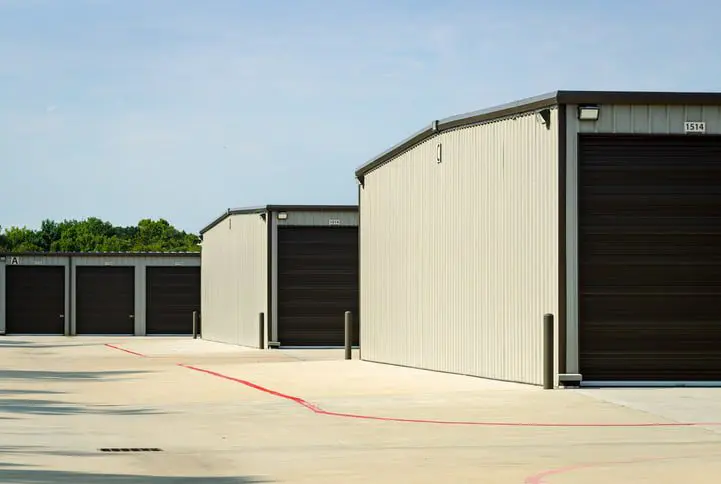Why Storage Is the Smartest Move for Urban Small Businesses?
Starting a business is hard. Scaling it in a crowded city? Even harder. Space is at a premium, overheads climb fast, and flexibility is the currency of survival. That’s why more entrepreneurs are rethinking how and where they store the assets that power their growth.
Urban entrepreneurs, from e-commerce resellers to freelance creatives, are increasingly turning to self-storage. Not the dusty garage model of decades past—modern storage units now offer climate control, security tech, and easy 24/7 access. This flexibility creates room to grow, literally and strategically.

If you’re launching or running a lean operation, storage units can help you do more with less. For instance, small business owners in Palo Alto often store trade show booths, product samples, or off-season gear, keeping their main workspace clutter-free. Similarly, businesses in Miami use storage units as extensions of their inventory systems, especially during seasonal booms like spring break or the holidays.
Smart Solutions for Growth
This kind of smart storage use isn’t just convenient—it’s a cost-effective way to stay nimble. Entrepreneurs in Dallas and San Francisco are leading the trend by treating storage units as operational hubs. A wedding planner might stock decor items, backup tech gear, and printed materials all in one easily accessible location. As overhead climbs in cities like San Francisco, offloading non-essentials to a secure unit is a savvy move.
Some founders have taken it further by integrating storage into their client workflows. A fashion stylist, for example, could rotate seasonal wardrobes stored in a San Francisco unit while working from different cities. Meanwhile, solo contractors in New York or Chicago often rely on car storage for business vehicles, especially when residential parking is unpredictable or expensive.
Space That Supports Strategy
What makes storage even more entrepreneur-friendly today is the customization. Whether you need drive-up access, advanced security features, or a unit size tailored to your niche, there’s a solution. And in competitive markets, having this kind of flexibility can help level the playing field.
It also opens up remote possibilities. If you operate across multiple cities, a network of units lets you scale without committing to permanent overhead. An e-commerce seller might ship bulk inventory to units in Dallas, Miami, and Chicago, then fulfill local orders faster while lowering shipping costs. It’s operational efficiency without the warehouse price tag.
There’s also a mental clarity angle. A clean workspace improves focus. When gear, inventory, or backup supplies are out of sight but within reach, entrepreneurs report better productivity. It’s not just about space savings—it’s about reclaiming time and mental energy.
Adapting to Urban Realities
Modern business challenges demand agility. Storage helps entrepreneurs adjust quickly without disrupting workflows. Whether you’re pivoting, expanding, or consolidating, short-term leases and scalable space can support each phase.
Even service-based businesses benefit. Photographers, for example, often store lighting kits, props, and prints in climate-controlled units. A dog walker or pet groomer might keep crates, equipment, and seasonal gear close to clients but outside their homes. The key is having access to flexible off-site space that functions like an extension of your studio or office.
There’s also security. Today’s storage options go beyond a padlock and metal door. With keypad access, surveillance cameras, and even biometric security at high-end facilities, entrepreneurs can trust that their tools and goods are safe.
Real Estate Without the Rent
Commercial rent can crush a small operation. Storage offers a way to operate leaner, especially in places where square footage commands a premium. Using self-storage in cities like Palo Alto or Miami lets businesses grow without jumping into expensive leases prematurely.
Retailers use units for excess merchandise, pop-up shop supplies, or signage. Therapists might keep office decor and printed materials stored between client location changes. It’s a strategy that lets entrepreneurs scale affordably in major cities while maintaining professional standards.
Even startups with hybrid teams use storage to centralize essentials. Equipment, banners, or remote team kits can be distributed as needed while the core team works remotely. Storage becomes the physical infrastructure behind a digital-forward company.
Planning for What’s Next
Some entrepreneurs are using storage as a bridge to new markets. By storing inventory closer to a future service area, a business can test expansion plans without committing to a physical storefront. This approach works well for businesses preparing to launch satellite services or tap into underserved neighborhoods.
Storage also helps with event-based planning. Businesses that attend conferences, markets, or festivals often use units to store signage, supplies, and portable infrastructure between events. It saves transportation costs and avoids cluttering primary workspaces. And because storage contracts are often flexible, it’s easy to scale up or down as needed.
Smart business owners aren’t just solving today’s problems. They’re positioning themselves for future growth. With cities constantly evolving, having flexible, cost-effective space in your back pocket lets you take on more without overcommitting.
Storage isn’t just an afterthought—it’s a deliberate decision. One that supports planning, growth, and resilience. It helps new businesses take root, allows side hustles to scale, and gives seasoned entrepreneurs breathing room to innovate.
In a world where overhead can strangle ambition, the most successful entrepreneurs find ways to stretch their resources. Affordable storage in urban areas has become one of those strategic tools. When space is limited, innovative use of off-site storage isn’t just practical—it’s transformative.


